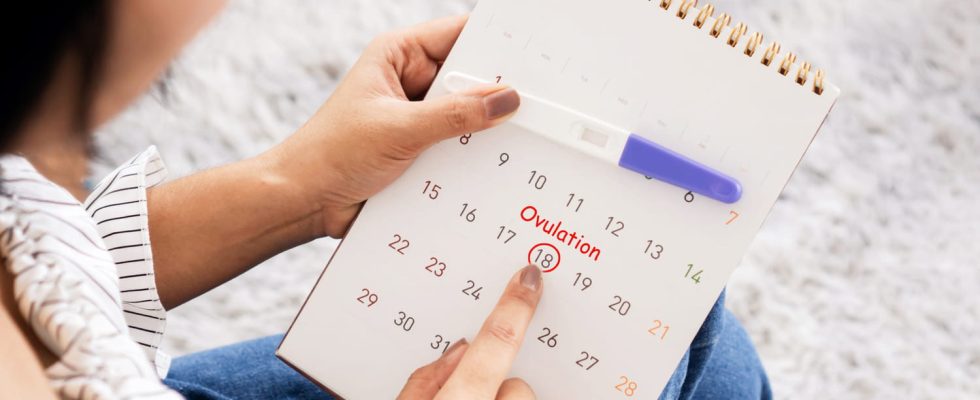A pregnant woman is not supposed to have her period during her pregnancy. On the other hand, she may have bleeding which can be benign or of a pathological nature, which requires a consultation. Causes, anniversary periods, blood clots… Gynecologist Bernard Hédon answers our questions.
In early pregnancy, is it possible to get your period? And how do you know if you are really pregnant? Indeed, some future mothers may have the impression ofhave their period when they notice vaginal bleeding during pregnancy. Of light bleeding, often not serious, can sometimes occur during the first months. However, if the bleeding is heavy while you are pregnant, it may be a sign of an obstetric pathology that requires a consultation. Be aware that there are also in rare cases what are called birthday rules. Gynecologist Bernard Hédon brings us his expertise to better understand what happens in these cases.
Is it possible to be pregnant and have your period?
In principle, a pregnant woman does not have her period. “Missing your period is the first sign of pregnancy.“, remind us gynecologist-obstetrician Bernard Hédon. It is a symptom of pregnancy. Nevertheless, the mother-to-be may have light bleeding at the start of pregnancy: when the egg is implanted in the uterus (this is the nesting process)or because of lesions of the cervix or vagina. This bleeding may look like a period, but it’s not.
It also happens, exceptionally, “about 1 in 1,000 women” according to Dr. Hédon, that a future mother still has her period while pregnant. This is then what is called birthday rules that is, bleeding occurs on the normally expected date of menstruation without any identified pregnancy pathology. These birthday rules occur the first month or even the first three months of pregnancyAnd “cease no later than the end of the first trimester”. “A diagnosis that can only be retained when a pathology explaining the bleeding has been formally eliminated”, emphasizes Dr. Hédon.
“This diagnosis can only be retained when a pathology explaining the bleeding has been formally eliminated.”
But then, how do you know that you are pregnant if you continue to have your period during the first trimester of pregnancy? “There are indicators that are the other classic early pregnancy symptoms like tender, swollen and painful breasts or morning sickness.“, reassures Bernard Hedon. Symptoms that allow the future mother with these birthday rules to become aware of her pregnancy and not fall into a denial of pregnancy although this can occur in patients with amenorrhea (absence of menstruation).
Your gynecologist can distinguish between menstruation and bleeding, in particular by carrying out medical examinations to find the cause of this bleeding. On your side, you can also check whether or not you have any menstruation symptoms (sensitive breasts, abdominal cramps, lower back pain, fatigue, digestive disorders, impact on mood, etc.). If so, it may mean that you are on your period. In any case, it is best to consult your practitioner to be sure.
What are the causes of bleeding during pregnancy?
During your pregnancy, the gynecologist or the midwife will ask you regularly if you have observed any blood loss. “The bleeding that affects 20 to 25% of pregnant women is not normal, but pathological”, alert the obstetrician. So, if you are pregnant and you lose blood, you must go to your gynecologist without delay so that he looks for the origin. First of all, the doctor will make sure that it is not a pathology of pregnancy. The two main causes of bleeding in early pregnancy that we will try to avoid are the risk of miscarriage as well as ectopic pregnancy.
Thanks to gynecologist-obstetrician Bernard Hédon, co-author of the book The Big Book of My Pregnancy (Editions Eyrolles).
